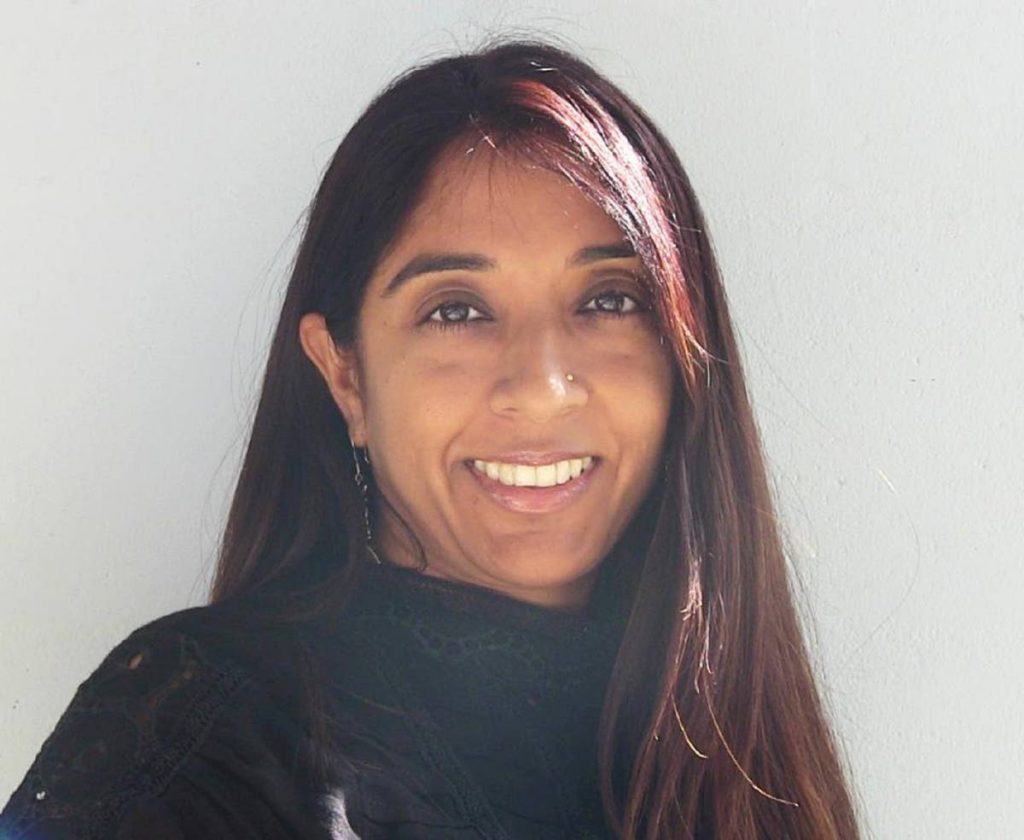My brilliant, logical dad

Diary of a mothering worker
Entry 337
motheringworker@gmail.com
DR GABRIELLE JAMELA HOSEIN
AS A CHILD, the white handkerchief in the right back pocket of my dad’s pants would dry my tears. Collecting his belongings, after he unexpectedly died of a heart attack on Thursday in St Vincent, in a pair of his pants folded on a shelf, I found his handkerchief, soft and familiar.
I slid it into my own right back pocket, his habit giving me comfort and connection. At the morgue, I stood bewildered, clutching that small cotton square, willing his eyes to open, contemplating the hard metaphysics that we can be here and not here at the same time.
I said all the things one says, it’s okay, I forgive you, I forgive myself, I’m sorry some people hurt you, I’m so glad some people treated you well, I wish you peace, I thank you, I love you. When I couldn’t think in words anymore, I stroked his hair and his head, breathing for us both, breathing, breathing.
My dad, Azad Nazar Hosein (February 9, 1943 -June 6, 2019) was brilliant. He was devastatingly logical, had an absorbed and dominating mind, and could sharply envision both a far end and each step in-between. He opened the first computer school in the country, called ComTech, and I distinctly remember him teaching students to code, standing at a wooden podium with a gold plaque printed with the word, “Think.”
For decades, he worked with governments on strategic planning and project management like a guru in the field. He was a workaholic, committed to the region, his students, preventing fiscal mismanagement, and empowering civil servants with whom he collaborated.
He was also difficult and unpredictable, and for a long time I struggled. I learned forgiveness and compassion from loving him as I grew older, but I also learned how to protect my boundaries, how I wanted to be loved, and what it means to both be a survivor and be who I am because of his strengths. Fathers are not always easy.
Stroking his hair, time fell away, and I was no longer the adult intimate with his gifts and failings. The more his cold body became real, the more insubstantial I felt, like I was dissipating into a ghost of myself at five or six years old, crumpling his handkerchief and drying my tears. I had not stroked his hair so gently like that for nearly 40 years, with the entirety of a child’s adoration and affection. It was visceral and mutual, he adored me then too.
I saw him last week Monday in a chance encounter in the Tobago airport. He was fasting for Ramadan and had just swum in the ocean. He looked tall, confident and well for his 76 years. We spent time discussing procurement and corruption. He started the conversation by saying he hadn’t seen me write in the newspaper about the new US laws against abortion, and launched into a short speech about how he strongly believed in a woman’s right to choose.
How did he manage to believe that his work with Caribbean governments would change how we strategise, implement and evaluate when it had not as yet? He said, you have to have eternal optimism that things will improve in the region. I looked at him, smiling to myself, so clearly the child of my parents’ politics and commitments, features and mannerisms.
Working at UWI reminds me of my dad, who also once lectured there. I think of him striding long-legged across the field to the mainframe computers on campus, with boxes of punch cards in his arms, while I ran alongside to keep up at six or seven years old. I think of him helping me learn to ride my bicycle on Dash Street, opposite UWI school, where I climbed trees in the lush backyards of campus housing. I think of him calling me “sugarplum” when I would leap into his arms and touch his hair.
Before he boarded the plane last week Monday, he retold the story of his happiness on the day I was born. I was the girl he wanted. Now I think I should have taken a picture of us, should have hugged him longer, but all I have is that he kissed me on the cheek and I saw him smile for the last time. He was not perfect, but he was mine.
In the morgue on Friday morning, the pathologist came out with my dad’s heart covered in a bowl in his hand. While he explained the autopsy results, I kept looking at his wrapped heart. This was the heart beating in his body last week Monday. This was the heart I wanted to love me. Here for the last time was his heart. Now, there would be only memory and acceptance. No more chances to make anything right.
I was four years old when I stood next to my dad at his mother’s funeral, his handkerchief on his head while he prayed. For the first time I will be there again, tomorrow, his handkerchief drying my tears as he is laid to rest in his mother’s grave.

Comments
"My brilliant, logical dad"